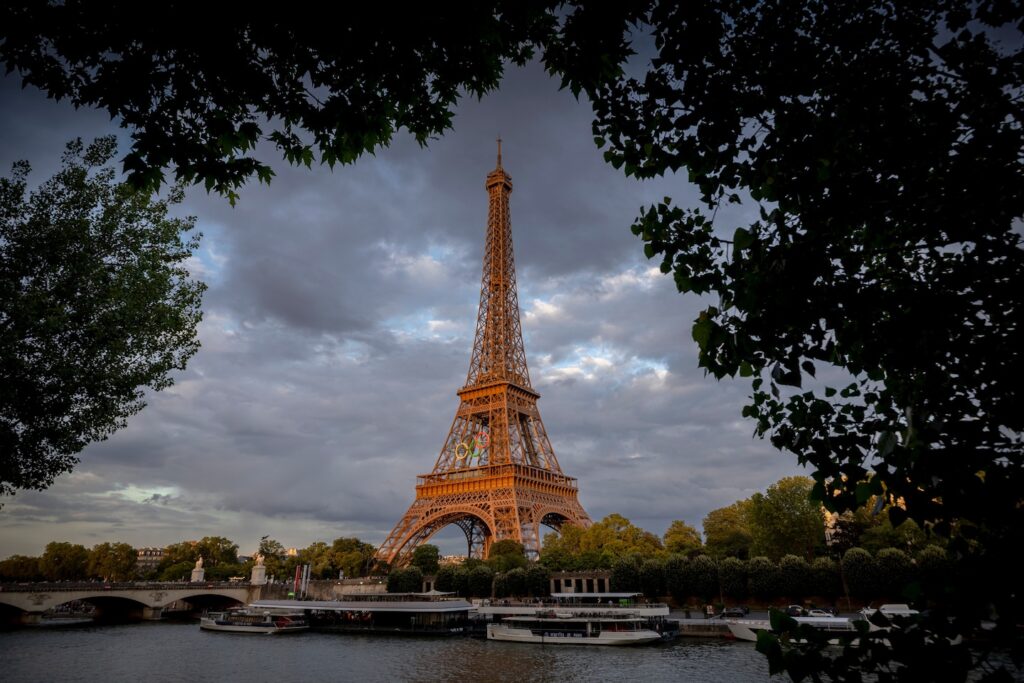Heavy rainfall could also affect pollution levels in the river. Paris authorities are trying to make the Seine clean enough to host the Olympic triathlon and marathon swims, but test results released by city and regional authorities on Friday showed levels of E. coli bacteria exceeding safe swimming standards.
The actual opening ceremony is expected to be even more extravagant than Monday's test run, with up to 180 boats, 10,000 athletes and 326,000 spectators watching from the riverbank. Plans call for a waterborne parade that will travel more than 3.5 miles from the Pont d'Austerlitz in central Paris to the Eiffel Tower. USA Gymnastics CEO Li Li Leong said she expects her team's athletes will be hesitant to attend the ceremony because it will require them to be on their feet for nine hours.
French authorities have said security will be tight, with 45,000 police and 18,000 soldiers backed by 22,000 private contractors, but private sector leaders have expressed concern there may be a shortage of qualified contractors.
The top priority is preventing a major terror attack like the suicide bombings and shootings in Paris in 2015 that killed 130 people, or the truck that plowed into crowds in Nice in 2016, killing 86. French authorities are also sensitive to the need to avoid dangerous crowds pushing and shoving.
Last month, the interior ministry said it had arrested an 18-year-old from Chechnya for plotting to attack spectators and police at an Olympic soccer match in the French city of Saint-Etienne, and this month an Islamic State-linked website posted images of a drone pointed at the Eiffel Tower, appearing to encourage “lone wolf” attacks.
While some of the threats may come from extremist groups, Microsoft's Threat Analysis Center reported that Russian disinformation campaigns are also attempting to discredit the Paris Olympics and spread the perception that violence will occur.
The safety concerns have clashed with France's pledge to “open up the Olympics to the full.” Initially, Interior Minister Gérard Darmanin had said more than 500,000 spectators could attend the opening ceremony: 100,000 ticket holders on the riverbank and 500,000 fans watching for free from upper platforms. But he has now halved the total number, reserving 104,000 seats for paying spectators and distributing 220,000 free tickets to selected residents of Paris and other French cities where the Olympic games will be held.
France's sports minister, Amélie Oudea Castellas, told The Washington Post that the changes reflected “the need to make the ceremony as popular as possible while managing all the security and safety details.”
Officials say they still expect a record number of visitors – the previous record was around 100,000.
President Emmanuel Macron acknowledged he has a Plan B if serious security concerns arise in the days leading up to the ceremony, which could take place inside the Trocadero square opposite the Eiffel Tower or be moved to the Stade de France stadium on the city's outskirts.
Particular attention will be paid to the Israeli delegation, which could face its greatest danger since the 1972 Munich Games, when an attack by members of a Palestinian militant group left 11 Israeli athletes and coaches dead.
French authorities say Parisians who live or work near the riverside in central Paris are among the 1 million people who will undergo security checks by late July. In recent weeks, French police have conducted emergency drills and searched the vast network of catacombs beneath the city that lead to the Seine.
Olympic organizers have sought to reassure the public that the recently announced French elections and the possibility of a change of government after July 7 will not disrupt Olympic plans. Jordan Bardella, who could become prime minister if his far-right party wins enough, said he would not make any changes that would affect the Olympics. “The event must be a great success for the country,” he said.

